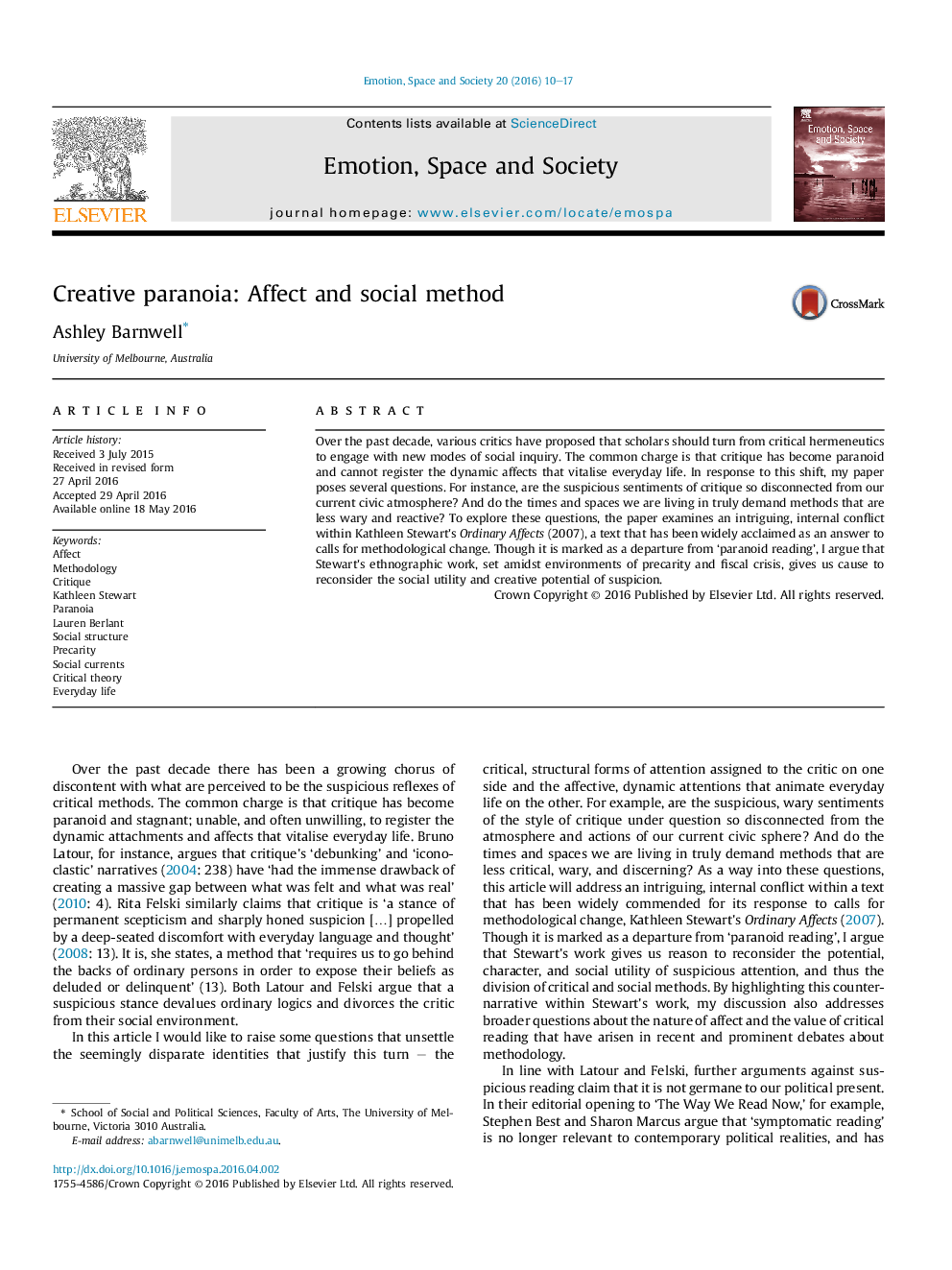| Article ID | Journal | Published Year | Pages | File Type |
|---|---|---|---|---|
| 946592 | Emotion, Space and Society | 2016 | 8 Pages |
•Introduces current debates about method in affect theory.•Offers a critical analysis of Kathleen Stewart's popular ethnography Ordinary Affects to illustrate tensions in this debate.•Draws out key questions about the value of suspicion in society.•Highlights the creative potential of critical reading for everyday negotiations with unstable social environments.•Rethinks existing theoretical divisions between affective forces and social structures.
Over the past decade, various critics have proposed that scholars should turn from critical hermeneutics to engage with new modes of social inquiry. The common charge is that critique has become paranoid and cannot register the dynamic affects that vitalise everyday life. In response to this shift, my paper poses several questions. For instance, are the suspicious sentiments of critique so disconnected from our current civic atmosphere? And do the times and spaces we are living in truly demand methods that are less wary and reactive? To explore these questions, the paper examines an intriguing, internal conflict within Kathleen Stewart's Ordinary Affects (2007), a text that has been widely acclaimed as an answer to calls for methodological change. Though it is marked as a departure from ‘paranoid reading’, I argue that Stewart's ethnographic work, set amidst environments of precarity and fiscal crisis, gives us cause to reconsider the social utility and creative potential of suspicion.
